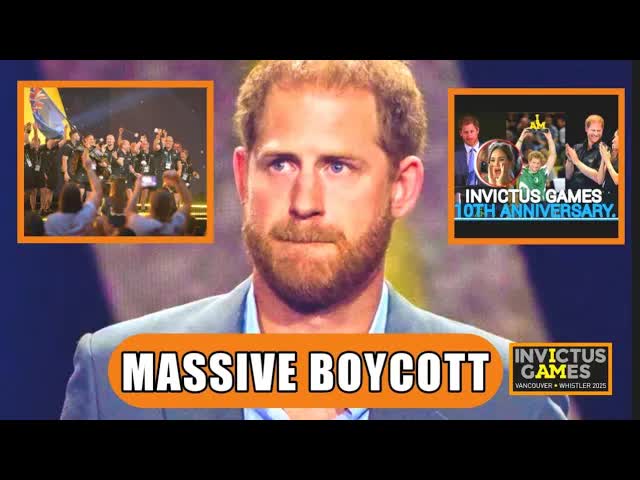The News
Tension Brews Ahead of Invictus Games’ 10th Anniversary Celebration
As the countdown begins for the 10th anniversary of the Invictus Games in the UK, an unsettling tension looms.
Reports of a potential mass boycott by British veterans have emerged, casting a shadow over what should be a momentous occasion.
Established in 2014, the Invictus Games were designed to honor and uplift injured servicemen and women, but now, the event faces a significant challenge.
The reasons behind this brewing discontent remain somewhat murky.
However, whispers suggest a growing resentment towards Prince Harry, sparked by his decision to step back from royal duties and his relationship with Meghan Markle.
Many veterans feel a disconnect between Harry's current lifestyle and the values that the Invictus Games stand for.
Once a passionate advocate for these heroes, Harry's shift away from royal responsibilities seems to have left some veterans feeling abandoned.
Initially, the Invictus Games were a heartfelt project for Harry, but now, they risk being overshadowed by the celebrity image he and Markle have cultivated.
For veterans who have sacrificed so much, reconciling this glamorous portrayal with the spirit of resilience celebrated at the Games poses a significant challenge.
Their experiences and struggles might feel diminished in the face of such a stark contrast.
Adding to the tension is the apprehension surrounding Markle's potential involvement in the event.
Known for drawing considerable media attention, her presence could inadvertently shift the focus from the veterans themselves.
The essence of the Invictus Games lies in celebrating the extraordinary achievements of wounded warriors, not in creating a platform for royal spectacle.
Yet, it's crucial to recognize that the reasons for the potential boycott may extend beyond Harry and Meghan.
Concerns about funding for veteran support services, a perceived lack of transparency within the Invictus Games organization, and a growing divide between the organization and the needs of veterans are all part of the conversation.
Blaming Harry or Markle alone would oversimplify a complex situation.
Harry's impending return to the UK adds another layer of complexity.
While his early commitment to the Invictus Games is commendable, his departure from royal life and the subsequent portrayal of his new life in the U.S. may have created a rift with the very community he once championed.
His arrival, even with the best intentions of celebrating the Games, might be seen by some as an attempt to reclaim a narrative that feels lost.
This looming boycott highlights the challenges faced by organizations reliant on celebrity patronage.
Although Harry's royal status was instrumental in launching the Invictus Games and attracting initial support, it also fostered a dependency that may now be detrimental.
The veterans' potential boycott serves as a call for the Games to forge a strong, independent identity that transcends any single royal figure.
The future success of the Invictus Games hinges on its ability to empower and inspire veterans.
Whether or not the boycott occurs, it is essential that open communication and genuine efforts to address veterans' concerns take center stage.
The Games must continue to be a platform for their stories of bravery and perseverance, rather than a backdrop for royal drama.






























































